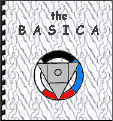Divine Forgiveness

Suppose you have a child who hits a baseball through a window, breaking it. If you take the ball away and cause the child to do some form of labor in order to pay for replacement of the window, that is punishment. It can express anger, teach consequences, or both. If the punishment is enough, the matter is settled, and the ball may be returned. If no amount of punishment is enough, and the ball is permanently kept from the child out of lack of trust or continued anger, it is as though an unpayable debt has been incurred. With any example of an unpayable debt, it should be considered whether the debt persists because of a demonstrated pattern of behavior or an extreme action that merits a lack of trust or whether a grudge is simply being maintained. Forgiveness can appear on the scene in one of two ways. One is if, seeing the event as accidental, you instruct the child to play where the ball can be hit safely and then pay for the window yourself and let the matter go. The other is if, having had a period of lack of trust, you come to feel it has been reestablished and return the ball then. In other words, forgiveness can be what brings an end to a situation in which no amount of punishment has been deemed sufficient. The debt that formerly seemed unpayable has been wiped away after all. A wise and loving parent, though not perfect, will attempt to find the right balance in choosing a response to a child's behavior, so as to impart instruction and a sense of responsibility without laying any undue burden on the child or teaching a lesson of bitterness.
As we get older, moving into and through adulthood, we come to more fully understand the struggles our parents faced while raising us. We better appreciate their efforts, sacrifices, and pain. With this increasing understanding, we also better appreciate the joy and love they found in helping us grow. Knowing of their disappointments gives so much more meaning to knowing of their pride. If our relationship with our parents is healthy and strong, we know their worry and anguish over past issues has faded away, while their love has remained. Our parents have forgiven us our childhood wrongs and relate to us as the adults we have become.
Just as God's presence can either feel incidental to your being or be consciously invited in and actively lived out, the same can be said of God's forgiveness. Consciously receiving Divine forgiveness is part of a mature relationship with God. It comes from inner reflection and from communication with God. We need only know that it is there and have a willingness to receive it in order for the conscious experience of it it to be ours. Alternately, and sadly, we can also consciously push it away.
As this forgiveness comes directly from God, we need no one to intercede and no particular religion in order for us to receive it. However, how we come to our reflection, understanding, communication, and acceptance may differ from one person to the next, and this may, for some, involve the aid of another person or of further, specific beliefs. Where religions differ is not necessarily in whether or not there is forgiveness to be bestowed but in how it is done (perhaps through some specific mechanism or as a result of a particular event) and why (because an unrelated action of yours has proven your worth; because you are amongst the true believers; because what happens in this lifetime is insignificant in the face of eternity; because you've sufficiently searched your own soul concerning the matter; because we are all so powerfully and profoundly loved that forgiveness is ultimately granted to everyone, regardless of belief and action; or for whatever other reason). It does no good to debate the validity of another's inroad. What matters is that we get there. Discussion is worthwhile, but let us not be so distracted by such debate that we risk missing the point.
We are designed as imperfect beings. Maturity and responsibility demand that we not be complacent about our motives, intentions, and actions, even in light of this fact. But we are not ultimately blamed for being as we were made to be: unable to live a full, entire lifetime without any missteps whatsoever. We have all erred, and we will do so again, even despite our best efforts. Often enough, it is because we are not trying to put forth our best. This is also part of our human frailty. A loving God who is our Divine Source understands this. For this reason, forgiveness is a gift to us. It is not a commodity to be bought. We cannot bribe for it. We certainly cannot cause it to be withheld from others because of our own judgments and prejudices or for any other reason. We can reject and deny it or we can accept and embrace it. And that choice is completely up to us.
Articles Set 3
Alphabetical List of All Articles

All contents ©


unless otherwise noted.
Back to the Introductory Page
or
Click to return to the main page of
